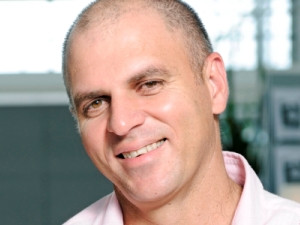
T-Systems SA has become the only known ICT multinational to become 30% empowered through a "creative" deal that will see black staff benefit from any upside in the value of the company.
The local subsidiary of T-Systems International, which claims to be the biggest end-to-end outsourcing company in SA, has not disclosed the value of the deal. However, T-Systems says, in terms of revenue, it is only slightly smaller than Business Connexion in the IT space, and that listed company has a market capitalisation of around R2.3 billion.
T-Systems SA has set aside 20% of its shareholding for the benefit of black staff, and another 10% for various education initiatives.
Independent analyst Paul Booth says as far as he is aware, the scheme is unique and will be the first of its kind among multinationals within the ICT sector. Microsoft, for example, has chosen to take an equity equivalency route and is investing in start-up entities.
T-Systems SA has now become a level two empowered company, the second-highest rank, and meets the provisions of the ICT charter in terms of equity ownership. Over the past year, it has quadrupled its employment equity rating and is accelerating transformation.
Much discussion
The empowerment deal, which was some time in the making, builds on its 2012 strategy to accelerate transformation, while at the same time becoming more inclusive.
MD Gert Schoonbee says the scheme, which has only just been signed off by Deutsche Telekom's board, makes the local unit unique as no other T-Systems subsidiary has allowed its staff to own such a large stake in the entity.
T-Systems International is owned by Deutsche Telekom, which has more than 142 million mobile customers, 31 million fixed-network lines and more than 17 million broadband lines. It has a presence in 50 countries and employs around 229 000 staff globally.
Deutsche Telekom turned over EUR60.1 billion in the last financial year, more than half of it outside Germany. T-Systems International has 50 000 staff, of which 2 000 are in SA, and generated EUR9.5 billion in 2013.
As part of the shareholder restructuring, T-Systems SA's board has also been reworked. Maphum Nxumalo and Schoonbee are executive directors, and are joined by Khangekile Simelane and Mpho Letlape as independent non-executive directors.
Georg Heil and Mardia van der Walt-Korsten are also on the board as non-executive directors. Van der Walt-Korsten, previously head of T-Systems SA, was promoted to head up its Africa region about two years ago.
Business boost
T-Systems bought back 30% of the company from its minority shareholders, and used this stake to restructure its minority shareholding. African Renaissance Holdings (ARH) was the senior empowerment partner, having been involved with the company since 2001.
Schoonbee says T-Systems "is grateful to ARH" for its partnership in several areas of transformation and business development during this time. "We are exploring alternative opportunities where this relationship will be different in future."
The 30% stake is now held through a more broad-based scheme that will benefit communities and black staff. The performance-based plan sets aside 10% for black female staff, 10% for black male staff and a 10% shareholding in Community Trust.
The Community Trust will invest in education initiatives that will be expanded beyond the current areas, which include the ICT Academy, the internship programme and the Hazyview Digital Learning Centre.
"If we change the minority shareholding, I would rather empower our employees," says Schoonbee.
Earning in
Schoonbee explains the 60-odd staff who will benefit need to meet certain performance targets, and will then share in 20% of any additional value created in terms of the company's worth.
KPMG valued the company, and will do so every year, providing a figure from which employee gains will be worked out, says Schoonbee. He adds the pay-out will only take place at the end of five years, at which time the group will do another round.
Schoonbee says staff members need to qualify to benefit from the pay-outs each year, and this is based on their work performance. "You can't rest on your laurels."
T-Systems is redesigning its bonus scheme, so that white staff will also benefit in "some way", Schoonbee adds. He notes the empowerment deal should encourage staff to help grow the company, which then aids all 2 000 employees as there will be sustainability.
Booth says the deal is "creative" and "unusual", but will unfortunately only benefit a handful of employees.
The empowerment deal is also a retention mechanism and should aid the company in attracting staff, says Schoonbee.
Booth notes the biggest problem in the sector is finding and keeping the right people as there is a lack of loyalty. "It's an absolute nightmare at the moment." The scheme could be a way of addressing these issues, he adds.
Booth wonders if T-Systems' shareholder restructuring is a precursor to another move, such as setting itself up to buy out another company. He notes there will certainly be consolidation in the outsourcing sector.
At the end of January, T-Systems SA bought local enterprise information management solutions provider Intervate, for an undisclosed amount.
Share